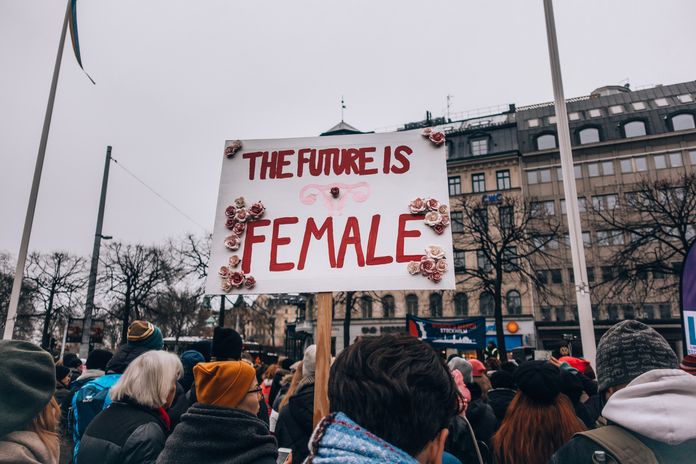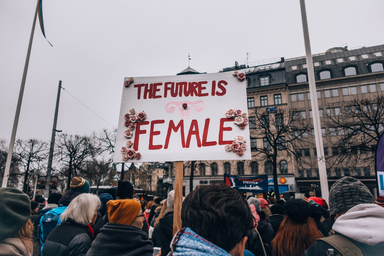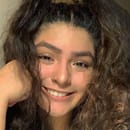As a Mexican-American woman who grew up struggling with her identity, I’ve made it my mission to interact more with my culture. I spent the greater part of my life repressing my heritage, and it wasn’t until a couple of years ago that I really started embracing it. As an attempt to learn more about my roots and my culture, this quarter I enrolled in Spanish 216: Spanish for Heritage Learners. So far, the class has taught me a lot about the language I grew up speaking, which in turn has led to my own reflection about taking part in my culture.
Being a person of color, I’ve noticed that it’s harder to find representation in career fields. Of course, while there are a lot of people of color who serve as role models for the community, it’s difficult to find someone of inspiration who is specifically Latino or Hispanic. However, throughout the quarter, I’ve managed to find someone like me that I’ve come to admire, my Spanish Professor, María Gillman. She has received multiple awards and distinctions, such as the Inspirational Leadership Certificate, Distinguished Contributions to Lifelong Learning Award, and had a scholarship at the Auburn Riverside High School named in her honor. I sat down with my Professor to talk about her journey as a woman of color in an educational career, a definite example of a powerful woman.
María Gillman came to the United States, after teaching elementary and middle school in Mexico for years. But before then, she studied in Ohio, before transferring to Oregon State University, where she finished her masters. She stated, “Back then, in the 80’s, it was very prestigious to study abroad, and I wanted to do that.” In Mexico, María received a BA in education, as well as a second BA in history, where she specialized in certain areas of Mexican history.
When asked about her experience of coming to the U.S., María said, “I was in some ways very naive, despite the fact that I had so much education and was older.” Although she had learned English in Mexico, Maria wasn’t as skilled in the academic English language, not making grad school exactly a walk in the park. While she of course faced discrimination, she was phased by it. “I was so sure of who I was, that I didn’t let these things affect me.”
While she finished grad school, her husband started his journey in the business world so Maria often attended work gatherings with him for support. As a field largely dominated by white males, she described being seen as “an exotic bird” among her husband’s business colleagues. Colleagues who would often make discriminatory jokes and point fun at her accent. After some time, Maria had had enough of this and told her husband that he could not continue to remain silent when these things happened.

After grad school, she decided to take a break from her career in order to raise her children at home for a few years; Maria was later hired at the UW as a contingent faculty. At first, her contracts were on an annual basis, but once she established herself at the university, she became permanent member and took her role very seriously as an educator. It was in 1997 that she noticed that several students weren’t doing particularly well on their exams. However, many of them had spoken Spanish most if not all of their life, so she couldn’t figure out why her students were not succeeding despite their upbringing. Maria wanted her students to succeed, so she started to look at other linguists to find a way to ensure her students did better.
Maria started to look at how southern states in the U.S. taught bilingualism, and she quickly became fascinated with the study of heritage learners. In her research, she found that students who have the gift of interacting with two cultures and two languages bring so much to this country. She began to conduct her own studies and looked to professors in other states, as the field is relatively recent. In 1990, the UW and Maria offered their first class for heritage speakers in 1990. After 10 years of María’s hard work and dedication, she established the first Heritage Speakers program in the state at the UW in 2000. Today, she now firmly believes, “Heritage speakers are the gold of this country.”
During her research, Gillman realized that she herself had many misconceptions of the Spanish language and realized that this was very damaging to her student’s education. She focused a lot of her work on sociolinguistics, looking at the effects of modern society on the language and its effects on learners. María also gained insight from her own children, being Mexican children who were born in the U.S. She listened to her children as they grew up, experiencing firsthand what it was like to be raised in two cultures.
All of her research and learning led her to truly appreciate her students’ skills and weaknesses, making her admire her students’ hard work and dedication that much more. Maria believes that in doing this, she is living up to her desire of being a true educator. One who prioritizes their student’s wellbeing and isn’t afraid to learn more on their own in order to ensure their students’ success.
Right at the height of her career, María was diagnosed with breast cancer. When this happened her children were 11 and 13, and she had just started on the heritage. She described, “Knowing there was a chance I might die, it made me more hungry for life, for knowledge.” It was scary for her, personally and professionally. Her research and teaching distracted her from the physical pain she was going through while on very strong medications.
María recalls the times she would go to class, feeling pretty worn out physically and mentally but then have a student say something funny to make some of the pain go away. “They were like injections. Small details like that or small misunderstandings [that would lead to laughter] were injections I was getting to fight cancer. I was drawing the energy I needed to get through from my students.”
María’s goals as a teacher are always to ensure that her students learn Spanish, but she also aims to reassure them that their language, as much as people might refer to it as “broken Spanish” is indeed valid. “I want them to appreciate their language and the culture that comes with it.” There are different ways to say one thing in Spanish, and Gillman wants to ensure her students know that these are all correct. She aims to create an environment her students feel comfortable in, one where they aren’t afraid to be judged for their, “Lengua mocha.” Loosely translated to “cut tongue,” it is used in a derogatory way usually towards bilingual speakers or those who use Spanglish.
During our interview, María mentioned that she is looking to retire in a year or so. While some believe that the heritage learners’ program at the UW is her legacy, Gillman says, “My legacy is with my students, not the work I did for the program. My legacy is the seeds of information I have implanted into my students over the years. When past students share their stories with me [of their life after UW and her class] those are my medallitas.” (The word medalla means ‘medal’ in English, but medallitas is a more endearing version of the term)
María’s life story and career journey is one I hope inspires everyone, but especially women of color and first-generation Americans. For my final question, I asked what advice she would give to young adults pursuing a career. Her reply:
“I would say that, one, remain curious in life always. Leave your options always open. Sometimes you have to take a different path to get to a certain point. It might take you longer, you might have to take a detour or maybe stop but that’s okay. Pursue your dreams, don’t lose sight of what you want. But at the same time be gentle on yourself, be flexible. Sometimes life will not be what you think it will be, but you must remain respectful. And the last one would be, you need to speak up. You cannot be silent. If you witness injustice, if you are disrespected, you need to speak up. Sometimes we don’t speak up because we are afraid of the consequences but, someone needs to do it. Especially if you are in work environments that are hostile, you need to speak up.”




